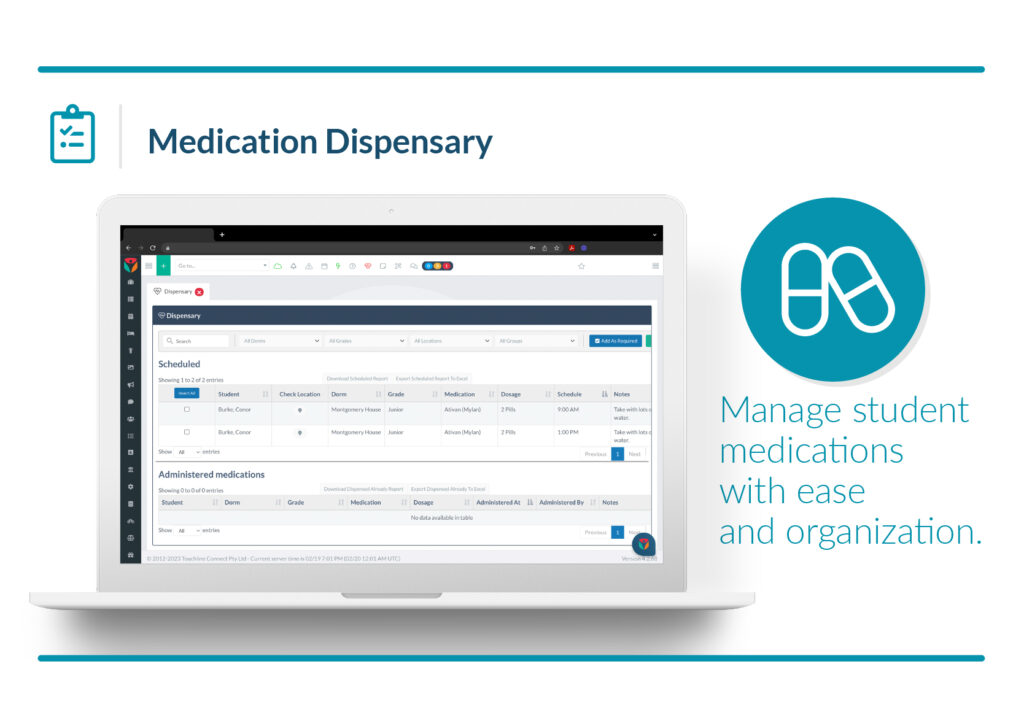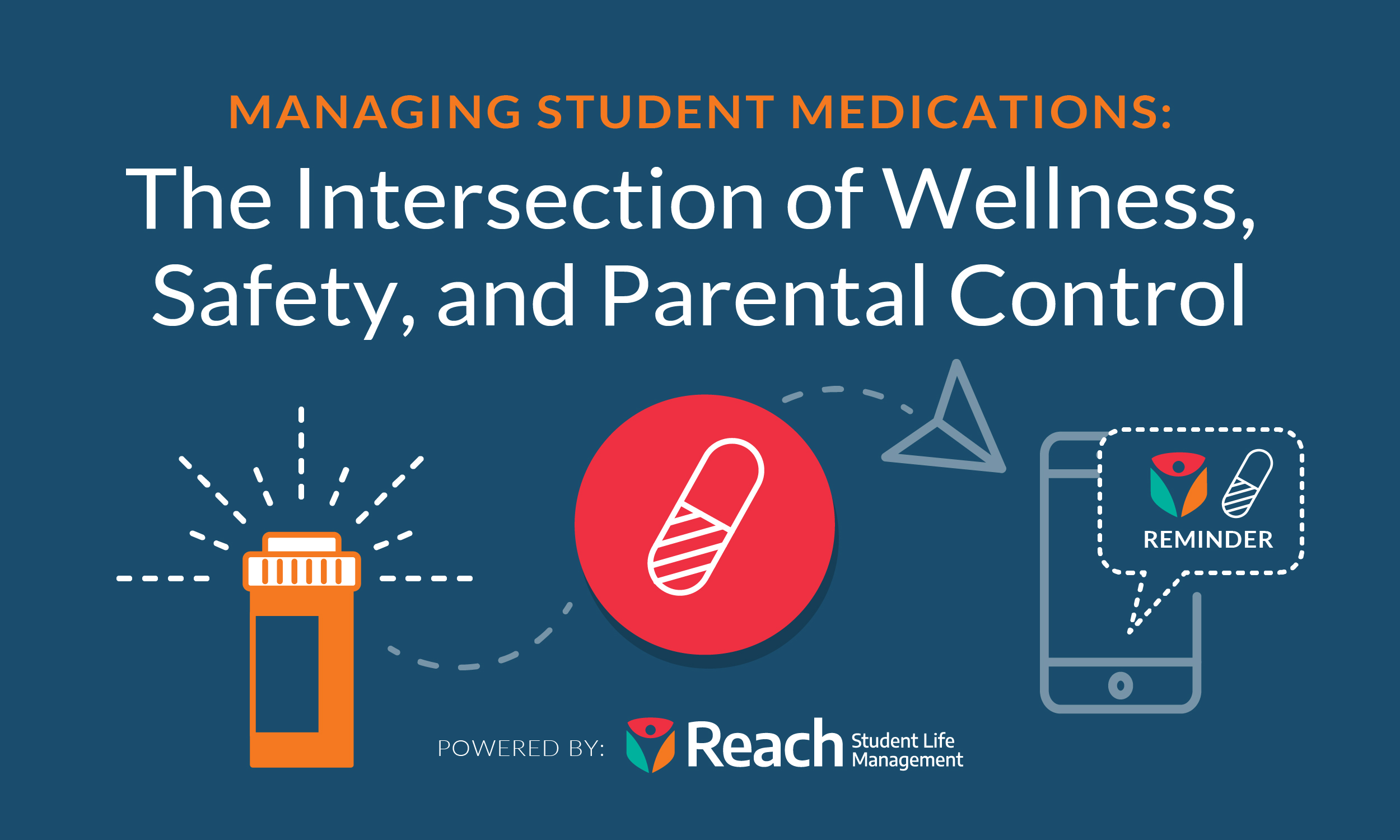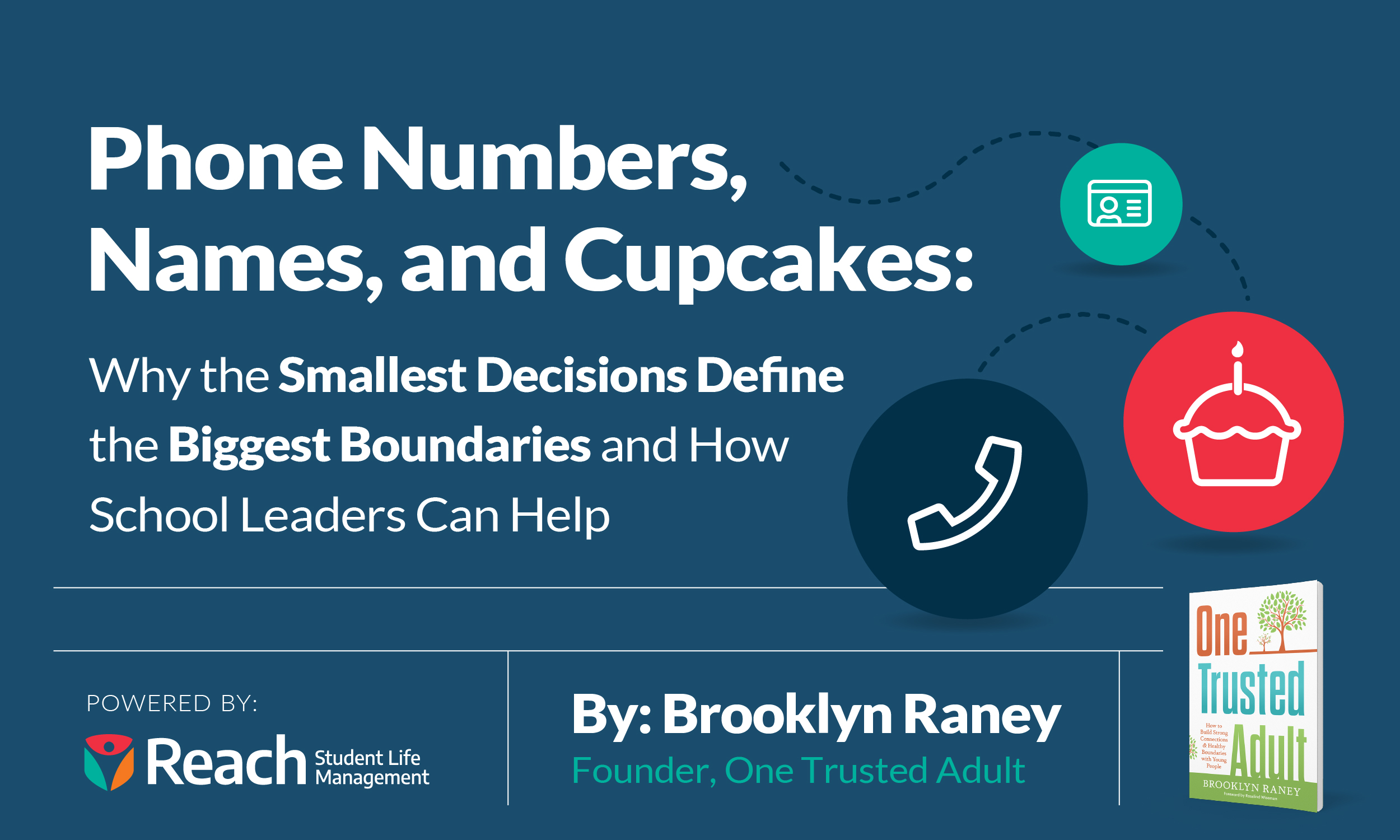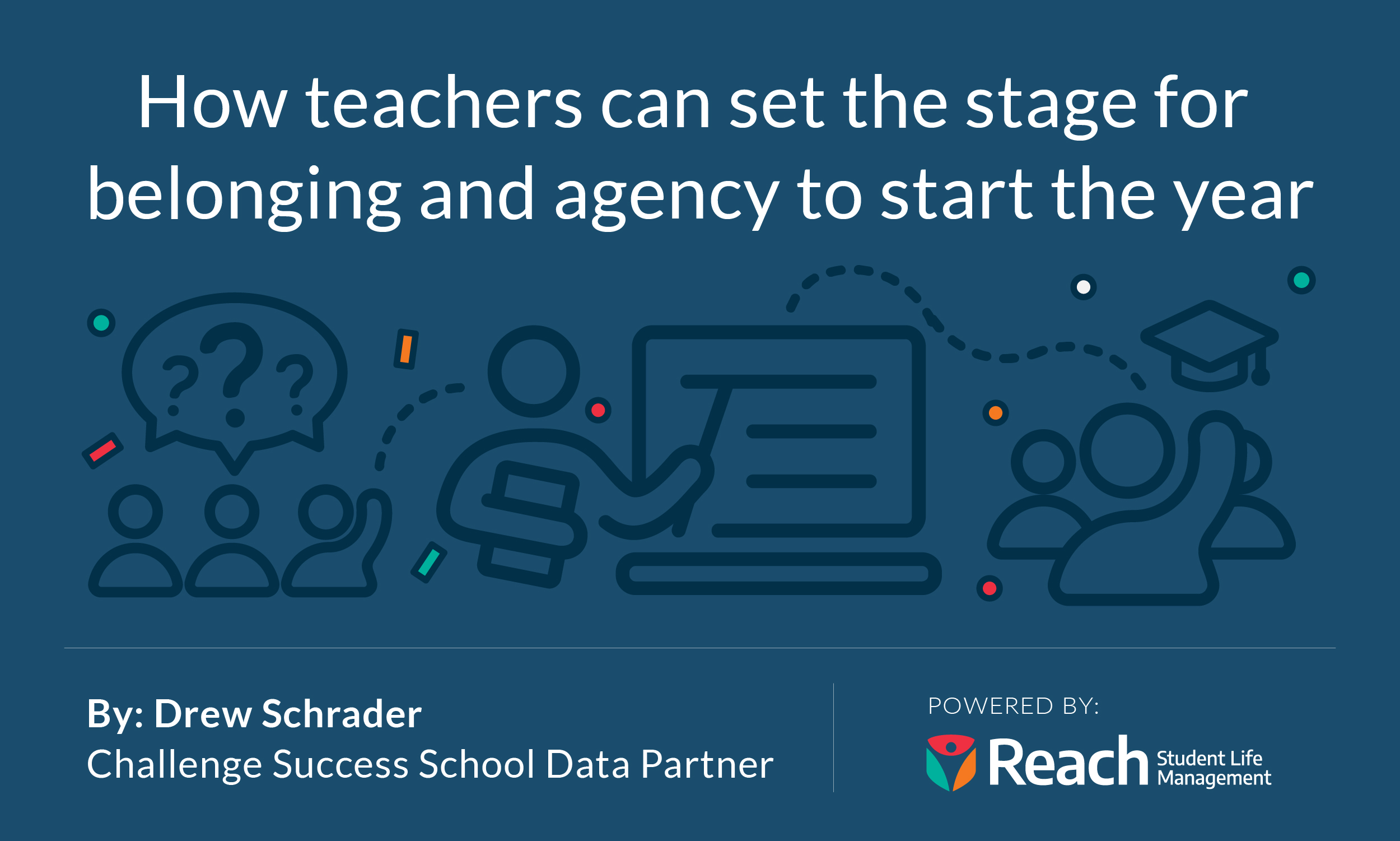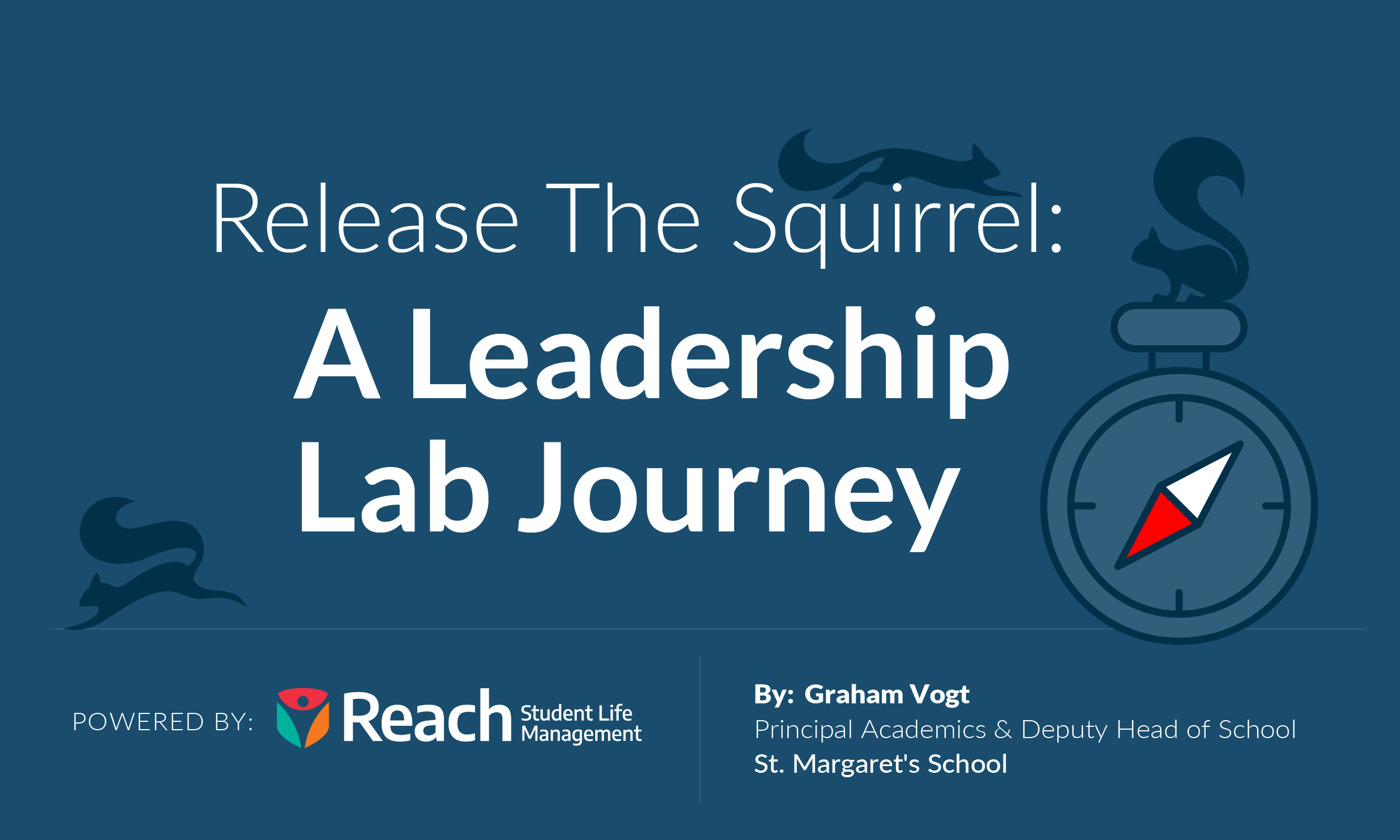In today’s boarding and day schools, student wellness extends beyond mental health and academic support—it also includes medication management. With more students requiring medications for allergies, chronic conditions, and mental health support, schools must navigate the delicate balance between parental oversight, student autonomy, and institutional responsibility.
This is where tech, like Reach’s Medications Manager, plays a crucial role in ensuring safety, compliance, and ease of management.
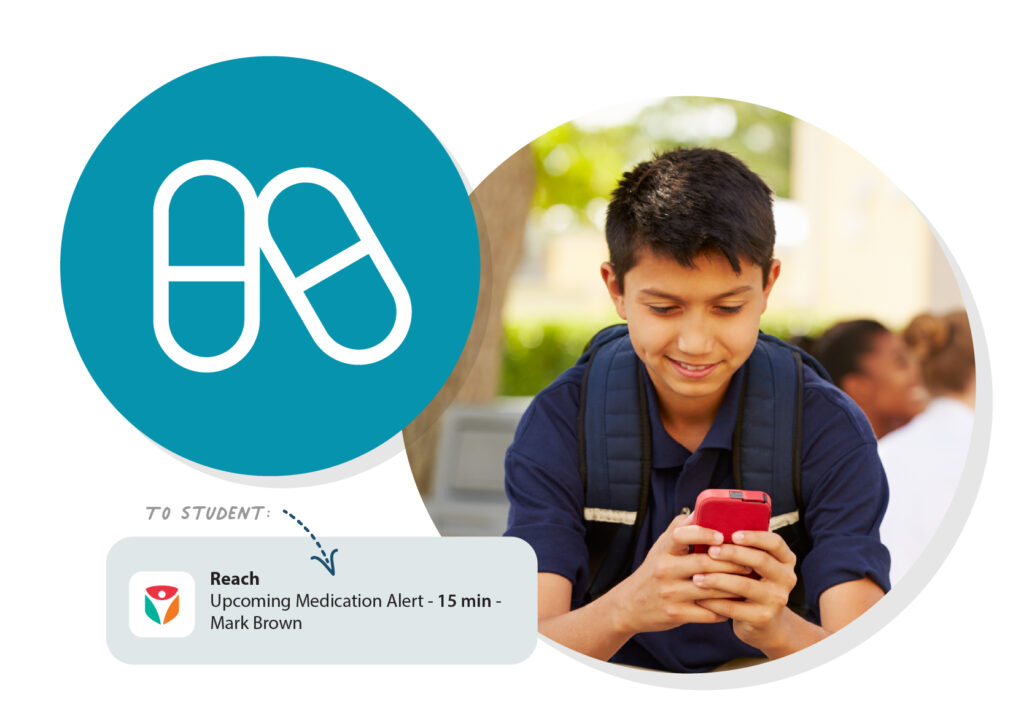
The Growing Need for Medication Management in Schools
From seasonal allergies to ADHD and anxiety, a significant percentage of students require medication during school hours. Managing this safely is one of the highest-risk activities undertaken in a school setting. The level of responsibility and accountability placed on staff is high—and the consequences of errors can be catastrophic, both for student well-being and for the school itself.
Traditionally, schools have relied on paper-based systems or manual record-keeping, increasing the risk of miscommunication, delayed administration, and documentation gaps. This is especially challenging in environments without on-site medical staff, where dorm parents, teachers, or administrative personnel are tasked with administering medication on top of their regular duties.
To protect students and reduce preventable risks, it’s essential that schools modernize their approach. Medication record-keeping must be accurate, accessible, and historically reportable. All schools need a simple, secure way to manage and approve medications—without creating new administrative burdens for already busy staff.
Parental Oversight vs. Student Autonomy
Medication permissions are a unique challenge because they require collaboration between parents, students, and school staff. Parents want control over what medications their child can take, while schools need clear guidance to act quickly in case of emergencies.
For example, if a student suffers from severe migraines but hasn’t been granted permission to take over-the-counter (OTC) pain relievers, staff may struggle to provide timely care. This raises an important question: How can schools balance the need for oversight with the flexibility to respond to real-time student health needs?
How Reach Simplifies Medication Management
Reach provides a modern solution to an old problem. Instead of relying on paper forms and slower administrative processes, schools can use platforms like Reach to streamline the entire system.
How It Works:
- Parents can have real-time access to view and update OTC medication permissions.
- Schools receive immediate updates when changes are made, ensuring accuracy.
- Medication records are stored securely and easily accessible to authorized staff.
- Students receive the right care, at the right time, with the right approvals.
This not only improves efficiency and safety but also gives parents the confidence that their child’s medical needs are being managed transparently and correctly.
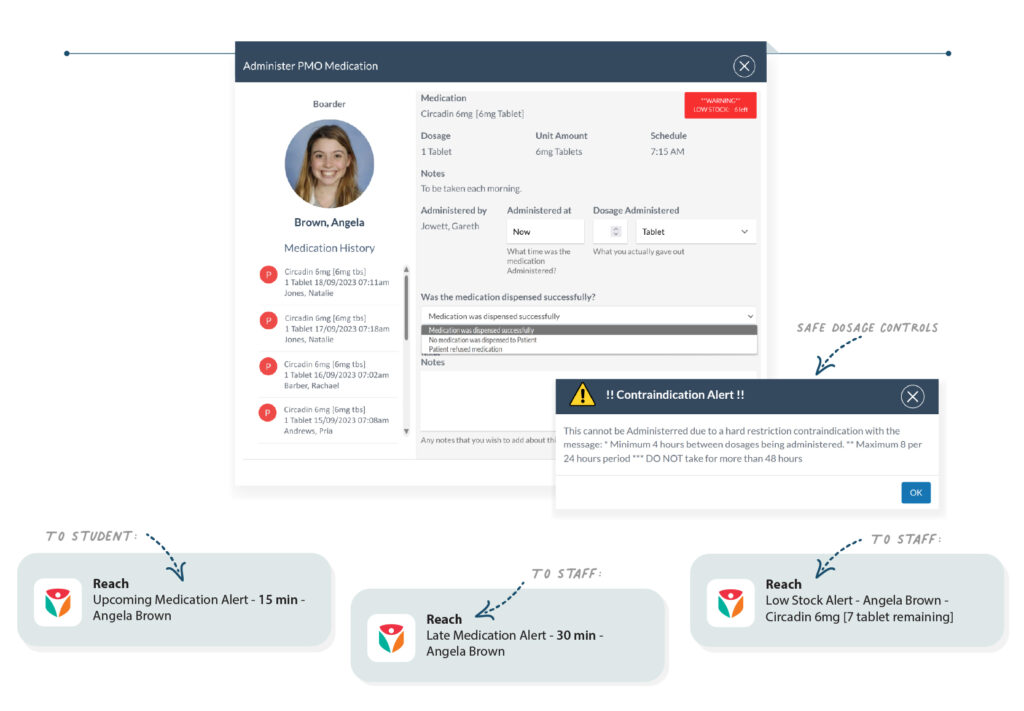
Real-Time Medication Management & Student Location Tracking
Reach provides an added layer of safety by allowing staff to track a student’s current location and leave status when administering medication.
For example:
- If a student is late to receive their scheduled medication, staff can check their location and either remind them or arrange an alternative plan.
- If a student is off-campus, arrangements can be made for medication upon their return.
This ensures that students don’t miss doses and that schools maintain accurate records of medication administration.
Auto-Pausing Medications for Leave
A common challenge schools face is ensuring that students on leave have their medication schedules properly managed—whether that means pausing unnecessary doses or ensuring they have the necessary medications with them while away.
Reach’s auto-pause feature helps mitigate this by automatically pausing scheduled medications when a student signs out for an approved leave.
- A visual alert is displayed in the student’s sign-out panel, reminding staff that medications are paused.
- When the student returns, the medication schedule resumes automatically, ensuring accuracy.
- If the student requires medication while on leave, staff can ensure they collect it beforehand.
This reduces errors and ensures consistency, eliminating confusion about whether a student should or should not receive a dose.
Medication Alerts & Custom Notification Workflows
To further support medication safety and adherence, Reach allows schools to configure custom alert workflows around medication schedules.
Schools can:
- Create customized alert profiles based on the significance or timing of specific medications.
- Set alerts to notify students before their scheduled dose.
- Send follow-up alerts to students and designated staff (such as nurses or supervisors) if a dose has not been marked as administered within a specific timeframe.
- Send time based alerts when scheduled medications are missed, depending on the school’s preferences.
- Create an end of day procedure to capture, record and notify relevant stakeholders about any missed medications for the day.
These alert workflows help reduce missed medications and support staff in providing timely care.
Compliance & Staff Accountability in Medication Administration
Ensuring accurate medication administration is not just about efficiency—it’s also about compliance and accountability. Reach enforces best practices by ensuring that:
- Only authorized staff members should administer medication—and while Reach cannot technically prevent the use of generic login profiles (e.g., “Supervisor on Duty”), it strongly discourages this practice to ensure accurate logging of medication records.
- Each dose is logged with the administering staff member’s credentials, maintaining accurate records for compliance and auditing.
- Historic reporting features allow schools to track and review medication administration over time.
By using a digital solution like Reach, schools can guarantee that they are adhering to best practices in medication safety while also maintaining compliance with school and government regulations.
Empowering Schools, Students, and Parents
Ultimately, an effective medication management system benefits everyone in the school ecosystem:
- Parents gain control and peace of mind, knowing they can easily update medication permissions as needed.
- School staff can administer medications confidently, without confusion or administrative burdens.
- Students receive timely and appropriate care, ensuring their wellness, safety, and academic success.
As schools continue to prioritize student well-being, integrating technology-driven solutions will be essential. Moving forward, we can expect even more customizable, data-driven, and real-time medication management features that enhance safety, efficiency, and communication.
Schools that adopt these technologies today will be better prepared to provide the highest level of care for their students, ensuring that medication management is not just a task, but a seamless part of a comprehensive student wellness strategy.
Is Your School Ready for a Smarter Medication Management System?
If your school is still relying on manual medication permissions, it may be time to upgrade to a solution that enhances safety, efficiency, and communication. Contact Reach today to learn more about how our Medications Module can help transform your student wellness strategy.
